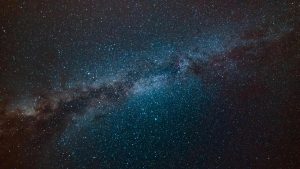Introduction: Unraveling the Mysteries of Space
Space has always fascinated humankind. From ancient civilizations mapping the stars to modern-day space missions, our curiosity about space and astronomy has driven countless discoveries. With technological advancements, learning about space is now easier than ever, whether you’re a beginner or an aspiring astronomer.
Exploring the universe doesn’t require a degree in astrophysics; you can start from home with books, documentaries, online courses, and stargazing activities. Whether you want to understand black holes, exoplanets, or the possibility of life beyond Earth, there are countless resources available.
In this guide, we’ll explore the best ways to learn about space and astronomy, helping you embark on an exciting journey to understand the cosmos.
1. Read Books on Space and Astronomy

Books remain one of the most reliable ways to gain in-depth knowledge about space. Whether you’re interested in the history of space exploration, astrophysics, or planetary science, there’s a book for every level of curiosity.
Recommended Books on Space and Astronomy:
- Cosmos by Carl Sagan – A classic that explores the wonders of the universe in an engaging way.
- Astrophysics for People in a Hurry by Neil deGrasse Tyson – A beginner-friendly introduction to the science of space.
- The Universe in a Nutshell by Stephen Hawking – A deep dive into black holes, relativity, and quantum mechanics.
- Packing for Mars by Mary Roach – A fascinating look at the challenges of space travel.
Reading books by renowned scientists and astronomers provides a solid foundation for understanding space.
2. Watch Space Documentaries and YouTube Channels
Visual learning is one of the most engaging ways to explore astronomy. Documentaries and educational YouTube channels break down complex concepts into easy-to-understand explanations with stunning visuals.
Best Space Documentaries to Watch:
- Cosmos: A Spacetime Odyssey – Hosted by Neil deGrasse Tyson, this documentary explains the universe’s origins, black holes, and the fabric of space-time.
- The Universe (History Channel) – Covers various topics like dark matter, asteroid impacts, and space missions.
- Apollo 11 – A detailed account of NASA’s first moon landing mission.
- Black Holes: The Edge of All We Know – Explores the mysteries of black holes and the event horizon.
Top YouTube Channels for Learning About Space:
- NASA – Official updates on space missions, planetary discoveries, and Mars explorations.
- PBS Space Time – Covers complex astrophysics and cosmology topics in an accessible way.
- Fraser Cain – Features expert interviews on space exploration and astronomy.
- Veritasium – Explores mind-blowing scientific phenomena, including space-related concepts.
Watching these space documentaries and educational videos makes learning about the universe both exciting and visually immersive.
3. Take Online Courses and Astronomy Classes
If you want a structured approach to learning space science, online courses offer interactive lessons, quizzes, and expert insights. Many are available for free or at affordable prices.
Best Online Courses for Space and Astronomy:
- Coursera: Astronomy by the University of Arizona – Covers the solar system, galaxies, and exoplanets.
- EdX: The Science of the Solar System by Caltech – A deep dive into planetary science and space missions.
- Udemy: Astronomy for Beginners – A beginner-friendly course to understand stars, planets, and cosmic events.
- MIT OpenCourseWare: Introduction to Astronomy – A free course exploring the fundamentals of astrophysics.
These courses provide a structured way to explore space while learning from renowned professors and institutions.
4. Visit Planetariums and Space Museums
Nothing beats experiencing space through immersive exhibits and planetarium shows. Visiting a space museum or planetarium allows you to see real spacecraft, meteorites, and interactive displays about the cosmos.
Famous Space Museums and Planetariums to Visit:
- Smithsonian National Air and Space Museum (USA) – Features Apollo mission artifacts and space shuttles.
- Kennedy Space Center (USA) – Learn about NASA’s space missions and astronaut training.
- European Space Agency (ESA) Exhibitions (Europe) – Showcases satellite technology and space exploration.
- Griffith Observatory (USA) – Offers breathtaking views of the night sky and space exhibits.
If you can’t visit in person, many museums offer virtual tours, making space exploration accessible from anywhere.
5. Use Astronomy Apps for Stargazing
Stargazing is one of the most hands-on ways to explore the night sky and learn about constellations, planets, and celestial events. Astronomy apps make it easier by providing real-time sky maps and telescope guides.
Best Astronomy Apps for Learning About Space:
- SkyView – Identifies stars, constellations, and planets with augmented reality.
- Stellarium – A virtual planetarium that provides detailed sky charts.
- NASA App – Offers real-time updates on space missions and celestial events.
- Star Walk 2 – Great for tracking planets and upcoming meteor showers.
Using these apps while observing the night sky helps deepen your understanding of space.
6. Join Astronomy Clubs and Online Communities

Learning about space and astronomy becomes even more exciting when shared with like-minded individuals. Astronomy clubs and online forums provide a space for discussions, event updates, and collaborative stargazing experiences.
Where to Connect with Other Space Enthusiasts:
- Local Astronomy Clubs – Many cities have clubs that host stargazing nights and telescope viewings.
- Online Communities – Platforms like Reddit’s r/Astronomy and Facebook groups allow for discussions and Q&A.
- Citizen Science Projects – NASA’s Galaxy Zoo lets you help classify galaxies.
Engaging with an astronomy community enhances learning and curiosity about the universe.
Table: Best Learning Resources for Space and Astronomy
| Category | Recommended Resources |
|---|---|
| Books | Cosmos by Carl Sagan, Astrophysics for People in a Hurry |
| Documentaries | Cosmos: A Spacetime Odyssey, Apollo 11 |
| Online Courses | Coursera (University of Arizona), MIT OpenCourseWare |
| Apps for Stargazing | SkyView, Stellarium, Star Walk 2 |
| Museums & Planetariums | Smithsonian Air & Space Museum, Griffith Observatory |
| Communities | Reddit r/Astronomy, NASA Citizen Science |
Conclusion: Start Your Journey into the Cosmos Today
Key Takeaways:
- Read books by top astronomers to gain foundational knowledge.
- Watch space documentaries and YouTube videos for visual learning.
- Take online astronomy courses to deepen your understanding.
- Visit planetariums and space museums for hands-on learning.
- Use astronomy apps to explore the night sky.




